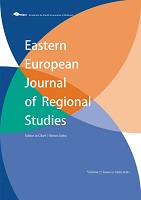The Impact of Migration Processes on Development
The Impact of Migration Processes on Development
Author(s): Dorin VaculovschiSubject(s): Labor relations, Economic development, Migration Studies
Published by: Center for Studies in European Integration, Academy of Economic Studies of Moldova
Keywords: international labor migration; employment; human capital; remittances; sustainable development;
Summary/Abstract: In recent years, international migration has been growing rapidly and has reached over 272 million people or 3.5% of the world's population, and 740 million people are considered internal migrants (IOM, 2020). Migration has become a defining feature of the modern global economy and the main factors behind its expansion are the processes of globalization itself, technical progress, the new economic order, etc. Since the early 1970s, governments in some countries have seen international migration as a major tool for economic development. Migration, especially labor migration, has become a defining element of economic development for the Republic of Moldova as well. Labor migration has become an important factor in combating poverty and increasing the welfare of the population of the Republic of Moldova. Moldova's economic growth over the last 20 years is due to remittances from migrant workers. There is a very close relationship between migration and Moldova's development prospects. The analysis of the impact of migration processes on the development perspectives of the Republic of Moldova, as well as the role of public authorities in the process of integrating migration into development strategies is the subject of this article.
Journal: Eastern European Journal for Regional Studies (EEJRS)
- Issue Year: 7/2021
- Issue No: 2
- Page Range: 27-40
- Page Count: 14
- Language: English

